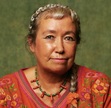Pascale Petit's Blog, page 4
March 3, 2015
My Tate Modern course The Spirit of Things: Poetry of the Body, Marlene Dumas and Nicholas Hlobo

For the third week of my Tate Modern course, The Spirit of Things: Poetry of the Body, we worked with Balindile I by the South African artist Nicholas Hlobo and three of his drawings that incorporate rubber and coral-hued embroidery in his signature baseball stitch.
We spent the first two weeks in the powerful Marlene Dumas: The Image as Burden exhibition, almost overwhelming with its vast rooms of over-life-size faces and bodies staring out at the viewer – confrontational in their gaze, conjured from her masterly brushstrokes, at once alive but ghostly.
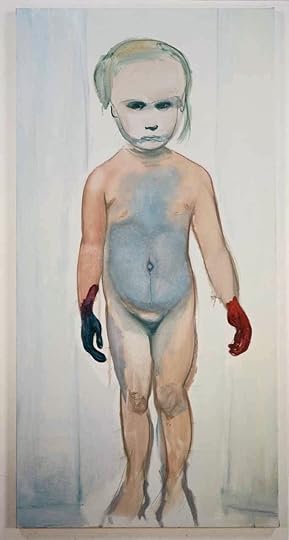
This is her portrait of her daughter, The Painter. To attempt poems responding to Dumas' portraits we discussed the exquisite poem 'Michael's Dream' from Mark Doty's sequence 'Atlantis', where he asks, "What is the body? Rain on a window, / a clear movement over whose gaze?" We also discussed Natalie Diaz' erotic and linguistically adventurous poem 'The Cure for Melancholy is to Take the Horn', Sharon Olds' 'Poem for the Breasts' from her TS Eliot prizewinning collection Stag's Leap, and the haunting, floating-on-the-page-like-a-spectre 'Some Ether' by Nick Flynn, the title poem of his debut collection, where the main portrait is an absence with a visceral pressure on the narrator, her hands "resting on my shoulders // trying to steer." Marlene Dumas has written much about her art so we also consulted her writings and quotes, which include this wonderful one:
Drawing is closer to whispering into someone's ear,Dumas' bodies are figurative, but Nicholas Hlobo approaches the body in a more ambiguous way. He titles his work in Xhosa, an Nguni language spoken in South Africa, so like Dumas, there is much attention to titles and the power of words for him. But it's the materials and textures that dominate, industrial rubber such as the inner tubes of tyres, hosepipes, are contrasted with drawings woven and stitched in precise pink and coral thread. His figures are active and organic, giant coiled blossoms suggestive of inner body parts and sexual organs.
while painting is more like the ear itself.
It contains all that has ever entered there.
It listens more than it speaks.
It throws speech into the dark.
Painting is not speechless.
It overflows.
It is a drunken mermaid's song.
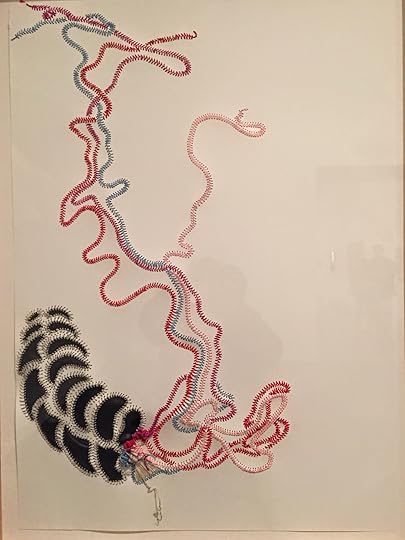
We'll spend two sessions with his works. Last night we started by playing the Definitions Game to create unexpected juxtapositions of concrete nouns and their definitions. I gave everyone two nouns, each one on a paper strip, they defined them, then we tore the noun from its definition and passed it to the next person to pin to their nouns. So the definition of a purse which starts as "a receptacle for keeping money safe" was matched to a breast: "a breast is... a receptacle for keeping money safe" and so on, 40 surreal definitions which we laid out on the floor to pick and choose from.
We discussed CK Williams' magnificent poem 'Tar', as it's so full of textural descriptions of industrial black stuff – "licorice", "Dantean broth"– the kinesthetic sensations of flexing ladders, and air "gunked with burst and half-burst bubbles". These helped to write poems in response to Hlobo's rubbery and sutured black and pink forms. The group also consulted a list of eight senses and had to write a poem that included them all, as well as one of the surreal definitions.
Next week we'll study CK Williams' poem 'Invisible Mending' from his collection Repair, to take a closer look at the embroidering aspect of Hlobo's work. His needlework, traditionally women's work, challenges gender roles in his Xhosa culture.
Published on March 03, 2015 10:14
Review by Dave Coates and some thoughts about why I wrote Fauverie
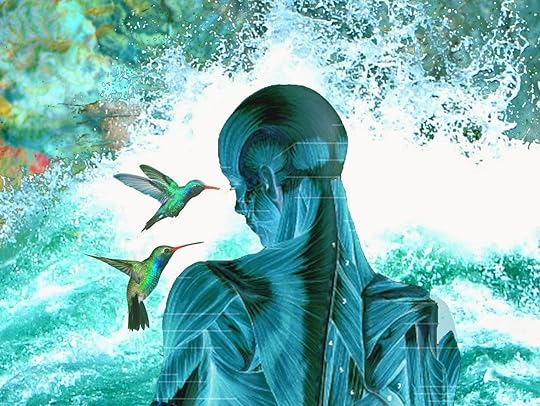
Dave Coates has reviewed Fauverie on his blog and for the spring issue of Poetry Wales. His is an in-depth analysis that explores the spirit of my book:
https://davepoems.wordpress.com/2015/02/04/pascale-petit-fauverie/https
Here is an excerpt:
"Fauverie works partly in light of her 2001 collection The Zoo Father, if at all possible I’d also recommend reading the earlier book."
"Though it too has its moments of tenderness, The Zoo Father seems in its most emotionally charged moments an angry book. In the first section its imaginative strength is employed in disempowering, making safe or actively harming the father in something like acts of retribution; these poems explicitly relate what the father has done to his family, and are difficult and painful to read. It’s an important collection, one I wish I’d read sooner. Fourteen years later, Fauverie – though it too openly confronts plain facts of violence and abuse – is at heart, I think, a book about finding peace. Though the organising details – the poet visiting her father on his deathbed in Paris – are the same, it does not so much re-write the story as examine it from different angles. The third poem in the collection, ‘Portrait of My Father as a Bird Fancier’, quite explicitly questions the morality of returning to a story, or of selecting another imaginative reality:
‘The one a nightingale serenadesHe concludes:
just because he’s in pain – that’s
the father I choose, not the man
who thrusts red-hot prongs in their eyes
so their songs will carry for miles.’
The poem ends with this certainty undermined:
‘He does not make canaries trill so loud
that the tiny branches of their lungs
burst. I am sure of this, though I am just
an ounce in the fist of his hand.’
The poem sets out the risk being taken in this re-examination; the book gives the father a voice on several occasions, and at times permits a view of him not solely as the monster of The Zoo Father, but as an old man himself confronting death; though the potential even for a dying man to commit or denote violence is, as in these lines, rarely far from the surface. It is noticeable, for example, that the father’s pleasures, like ‘Pâté de Foie Gras’ or ‘Ortolan’, require the incarceration and torture of wild animals.
"The final line of the poem and book is ‘I proclaimed peace after bloodshed’; for Fauverie to find this redress at a cost very clearly laid out in the body of the collection, this balancing of books where The Zoo Father perhaps did not, is a rather extraordinary gesture."It might seem strange to write two books about an abusive father. I didn't expect to write a second. I hope they are not just 'confessional' books. I see my personal experience as an insight into the problem of violence against women and children, rape and child abuse, the abuse of power. It seems a worldwide issue within the family and society. At its worst, there is sadism as well as contempt for women, as apparent in the case of the 2012 Delhi gang rape of a 23 year-old student, Jyoti Singh, on a bus, where the young woman shortly afterwards died of her injuries. I can't comprehend why those young men did that.
I have, however understood some of the factors that made my father behave as he did, he even explained one of them to me, that he himself was abused in the Jesuit school he attended, though he didn't explain that to accept any guilt, just to justify why he went wild when he left home.
It was important to me that in Fauverie every attempt is made to redeem the father as he was dying, but not to flinch from what he has done. If I couldn't forgive him in life perhaps I can in a book, in art.
Image credit: Dragana Nicolic, from the illustrated edition of The Zoo Father, Serbia.
Published on March 03, 2015 02:41
February 7, 2015
My T S Eliot Prize Shortlist Reading, my Paris Retreat, Charlie Hebdo Attacks
Here is the recording made by the Poetry Book Society of my reading for the T S Eliot prize shortlist event at the Royal Festival Hall on Sunday 11 January 2015. I was first on the huge stage so was very nervous. I was lucky to have made it too, as I'd just spent a month on a writing retreat in Paris and was there during the terrorist attacks. So I'll never forget that week, and was still feeling shell-shocked as I took part in the TSE events.
A siren went off for about half an hour on that morning of Wednesday 7 January. I was writing at the time and wondered what it was for. Was it the river police? Was a boat overturned on the Seine? I later glanced at Twitter and saw Charlie Hebdo everywhere and the word 'attacks' and 'Paris'. I had no idea who they were until then. The killings took place just over the river, about a mile from my garret in the Latin Quarter just by the Jardin des Plantes, and the next few days were very tense. I hardly dared go out and when I did everyone on the streets would jump each time a police car whizzed by. It was in this strained atmosphere that I tried to finish my poems and to practise the four poems I had decided to read for the T S Eliot Prize readings: 'Portrait of My Father as a Bird Fancier', 'Kissing a Jaguar', 'Ortolan' and 'Emmanuel'.
Luckily, I decided to come back the evening before, instead of on the day as planned, of the massive 'Je Suis Charlie' support march, which would have prevented me gettting to Gare du Nord that Sunday of the readings. I was sorry to miss the march but did hear the Notre-Dame 'Grand Solemnel' bells ring after two minutes' silence on the Thursday, to commemorate the dead. The two bourdon bells are only rung on special occasions. I opened my windows although it was freezing and listened to the low stately peals of Emmanuel and Marie, which always have an emotional impact. I'd heard them on Christmas day and hadn't expected to hear them again so soon. So when I finished my reading with my poem 'Emmanuel' the poem had gathered extra significance for me.
Published on February 07, 2015 01:37
October 19, 2014
About 'My Father's Wardrobe' The Saturday Poem in the Guardian
This Saturday my poem 'My Father's Wardrobe' from
Fauverie
was featured as The Saturday Poem in the Guardian. This poem grew from my admiration of Peter Redgrove's exuberant poem 'Wardrobe-Lady'. I wanted to write my own version of a person conjured through surreal clothes, to portray my elusive father who I only got to know in the last two years of his life.
My poem draws on scraps of information I managed to elicit from my father and from writings by my mentally ill mother about their brief lives together in Paris in the early 50s. It appears he was quite a playboy. After his death I found that one of the places he'd resided when he was older was the Argonautes Hotel in the rue de la Huchette, frequenting the jazz cellars there, and then in the Hotel Notre-Dame, overlooked by gargoyles. In his youth he'd boarded in a pension in St-Germain-des-Prés, where Django Reinhardt was a neighbour.
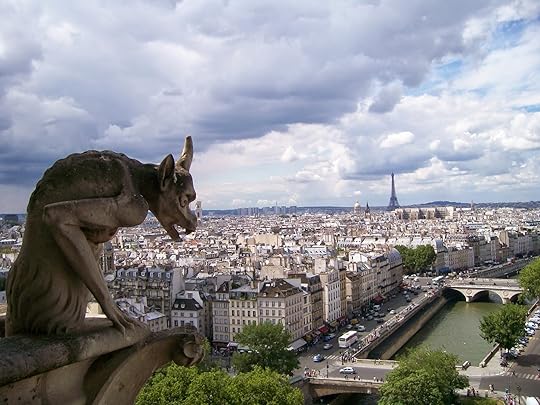 "He wears a cathedral cloak with chimera eyes". The uni-horned goat chimera overlooking the quartier latin and Hotel Notre-Dame
"He wears a cathedral cloak with chimera eyes". The uni-horned goat chimera overlooking the quartier latin and Hotel Notre-Dame
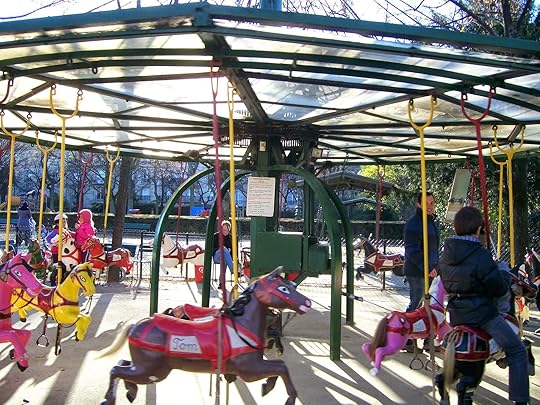
"A carousel turns silently between his knees / and in it a boy is singing on a lacquered foal". The century old hand-cranked carousel in the Champ de Mars.
 The devil chimera from Notre-Dame's south tower, overlooking his quartier
The devil chimera from Notre-Dame's south tower, overlooking his quartier
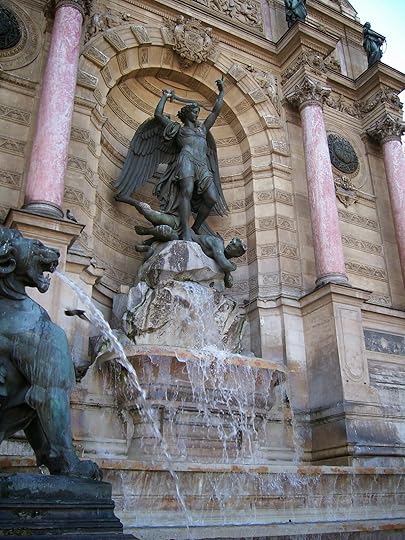 "One tie is an escalator, another a fountain / with Saint-Michel fighting Satan". My father was called Michel.
"One tie is an escalator, another a fountain / with Saint-Michel fighting Satan". My father was called Michel.
My poem draws on scraps of information I managed to elicit from my father and from writings by my mentally ill mother about their brief lives together in Paris in the early 50s. It appears he was quite a playboy. After his death I found that one of the places he'd resided when he was older was the Argonautes Hotel in the rue de la Huchette, frequenting the jazz cellars there, and then in the Hotel Notre-Dame, overlooked by gargoyles. In his youth he'd boarded in a pension in St-Germain-des-Prés, where Django Reinhardt was a neighbour.
 "He wears a cathedral cloak with chimera eyes". The uni-horned goat chimera overlooking the quartier latin and Hotel Notre-Dame
"He wears a cathedral cloak with chimera eyes". The uni-horned goat chimera overlooking the quartier latin and Hotel Notre-Dame
"A carousel turns silently between his knees / and in it a boy is singing on a lacquered foal". The century old hand-cranked carousel in the Champ de Mars.
 The devil chimera from Notre-Dame's south tower, overlooking his quartier
The devil chimera from Notre-Dame's south tower, overlooking his quartier "One tie is an escalator, another a fountain / with Saint-Michel fighting Satan". My father was called Michel.
"One tie is an escalator, another a fountain / with Saint-Michel fighting Satan". My father was called Michel.
Published on October 19, 2014 10:22
October 5, 2014
About 'Caracal', a poem from Fauverie, Carol Rumens' Poem of the Week in the Guardian
Carol Rumens has kindly selected my poem 'Caracal' for her fabulous Poem of the Week series in the Guardian:
http://www.theguardian.com/books/2014/sep/29/poem-of-the-week-caracal-by-pascale-petit The poem is from my new collection Fauverie which is set in Paris. At the core of the book is the Fauverie or big-cat house in the Jardin des Plantes Ménagerie. 'Caracal' feaures Black Ears the male caracal or desert lynx who is a resident there. When I wrote the poem he had a mate Anatolia but she wasn't there this summer and I was sad to hear that she'd died of cancer. He was on his own, looking quite lost, as they used to constantly play with each other, leaping into the air and pouncing on each other.
I wrote the poem after a momentous day: I'd finally got up the courage to visit my father's grave in Thiais cemetery on the outskirts of Paris. I remembered the place as an icy city of the dead, as the burial had taken place ealy one morning in late autumn, on a day when fog was thick as embalming fluid, and the cortege to pick me up from the morgue was late because of a fog-caused accident on the périphérique.
So it was a surprise to find that the corner of the cemetery where he lay was ringed by tall chestnut trees and filled with birdsong. A goshawk's cries echoed from tree to tree. I stayed there the whole day. It took ages to actually locate and be sure of his grave because it was unmarked. That in itself was a shock. I couldn't remember that I hadn't organised a headstone. It was fourteen years since I'd arranged his burial. I don't think I'd understood exactly what the documents meant and had somehow imagined that the funeral costs included that, those days and nights that I'd struggled with the business of death in France and in French legalese. I'd never buried someone before.
After the burial I'd gone to the Ménagerie, but that was before they expanded the cages and housed smaller species such as caracals. There was Maurice the lion then, pumas, jaguars, on straw, behind bars. I don't remember writing the poem much, just that I wanted to commemorate my return to Thiais, that it was a sunny magical place in May, not the grey ice-fog memory that had kept me away for so long. I went hunting over the paths around the vast geometrical maze of rented plots for bits and pieces that I could plant in my father's grave, so that next time I would find it. It was obsessive, this collecting of discarded treasures, I felt like a bower bird. I came across the tip of a porcelain white wing and decided it was from an angel at the time, though afterwards I thought it must have been from a dove. I planted some flowers and scratched his initials on wood.
I don't have much idea why the caracal is connected to my father in the poem, except that his fur looks just like the sandy soil of the grave, and that started the poem, also that I'd just seen Black Ears doing a somersault. My father, during his thirty-five years' disappearance, had lived for a few years in Algeria and they have caracals there. Perhaps that was it. I recorded the goshawk cries on my iPhone so I could check that it was a goshawk later.

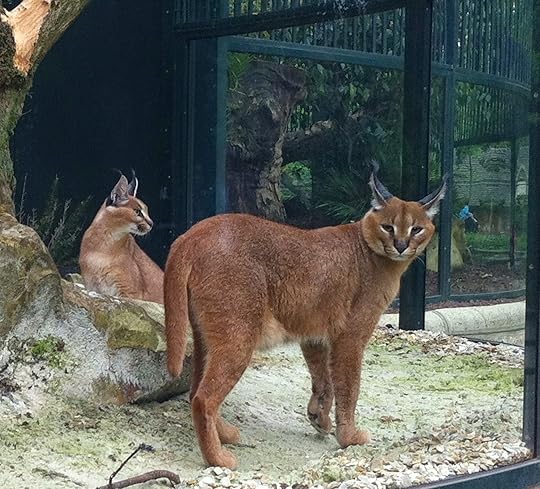

Published on October 05, 2014 11:02
July 10, 2014
Fauverie now available to pre-order from Amazon

Fauverie – my sixth collection – is now available to pre-order from Amazon and will be published on 2 September by Seren.
Amazon UK: http://www.amazon.co.uk/dp/1781721688
Amazon US: http://www.amazon.com/Fauverie-Pascale-Petit/dp/1781721688/ref=sr_1_1?s=books&ie=UTF8&qid=1404979933&sr=1-1&keywords=fauverie
Here is the front cover, featuring Aramis the black jaguar, designed and painted by Dragana Nikolic, and a starry sky back cover.
The book is a follow-up to my second collection The Zoo Father.
Here are sample poems http://pascalepetit.blogspot.co.uk/p/fauverie.html
"The Fauverie of this book is the big-cat house in the Jardin des Plantes zoo. But the word also evokes the Fauves, 'primitive' painters who used raw colour straight from the tube. Like The Zoo Father, Petit's acclaimed second collection, this volume has childhood trauma and a dying father at its heart, while Paris takes centre stage – a city savage as the Amazon, haunted by Aramis the black jaguar and a menagerie of wild animals. Transforming childhood horrors to ultimately mourn a lost parent, Fauverie redeems the darker forces of human nature while celebrating the ferocity and grace of endangered species."
Published on July 10, 2014 01:22
June 19, 2014
Poetry and Serious Play at Tate Modern: Bill Viola
For two sessions during my Poetry and Serious Play course at Tate Modern we're working with Bill Viola's video installation Tiny Deaths in the Poetry and Dream wing. This piece is exhibited on the occasion of the opening of his permanent commission Martyrs (Earth, Air, Fire, Water) in St Paul's Cathedral. Here he's interviewed about that commission.
Tiny Deaths is scary. You go into a dark room, you can't see where you're walking, then gradually shadows emerge from three vast screens around you, then one suddenly approaches in a flash of light. I worried that the group might have found it too uncomfortable, but it left them thoughtful and inspired. I brought in poems by Tomas Transtromer, also about crossing from one threshold to another, as the people seem to do in Tiny Deaths, and I think it helped.
Everyone picked three random lines from Transtromer's poems (from a hat) to incorporate in a poem responding to Viola's art. They could use these as quotes or change them to make them their own, or write a poem after Transtromer.
Next Monday I have asked them to bring the resulting poems to use in a secret exercise – I won't disclose what that will be until then, but all the senses will be used, as they are in the Tiny Deaths room, with its smell of burning charcoal. Then I'm going to share one of my own poems about crossing a threshold – 'What the Water Gave Me (VI)' which has Frida Kahlo in her bath but also in the moment of her death, and discuss how I wrote it avoiding a literal interpretation of the painting it's based on. We'll finish our Bill Viola fortnight with readings from the two sessions.
It was strange to move to Bill Viola after two weeks in the happy Matisse: The Cut-Outs exhibition. We had fun with those, played games and made the most of Matisse's colourful titles, which are poems in themselves. If you've visited the exhibition you'll know how crowded it is so imagine us having it to ourselves - for three weeks! We'll end the course there as well, so will return to the light!
Published on June 19, 2014 12:10
May 29, 2014
Developing Personal Myths at Ty Newydd and the painter Norval Morrisseau
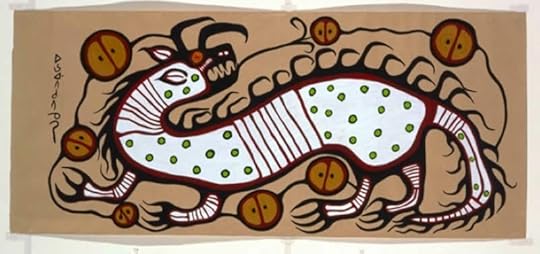
This is the painting Water Spirit by the celebrated indigenous Canadian painter Norval Morrisseau. On my course at Ty Newydd this July 14-9th, my co-tutor Armand Ruffo, an Ojibway First Nation Canadian poet, will give a slide talk about him. I've long loved this painting of water as feral force.
Ty Newydd is a hideaway writing centre that has sloping gardens with vistas onto the sea, sky and Black Mountains. I'm scared of the sea. Last week I taught a course at Chateau Ventenac in the Languedoc, and on our day off we went walking along the deserted Narbonne Plage. It was a windy day and the normally calm Med looked more like the Atlantic. It was just like this monster!
For our course, Developing Personal Myths
http://www.llenyddiaethcymru.org/x6-developing-personal-myths-from-indigenous-traditions/
we'll draw on a rich store of traditional Canadian and Amazonian indigenous myths, to write poems or prose pieces that transform the raw material of our lives into personal mythology. I've researched Amazonian myths for a few decades now, after I twice travelled in the Venezuelan Amazon in the early 90's.
I'm reading The Falling Sky: Words of a Yanomami Shaman at the moment and it is very enlightening to read how Davi Kopenawa perceives his environment and the spiritual powers of all living beings in the forest, as well as his impressions on visiting Paris and New York.
Here are more Morrisseau paintings, can't wait to hear Armand's slide talk!
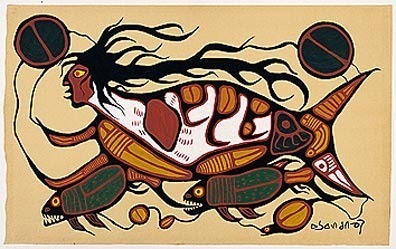 Merman, Ruler of Water
Merman, Ruler of Water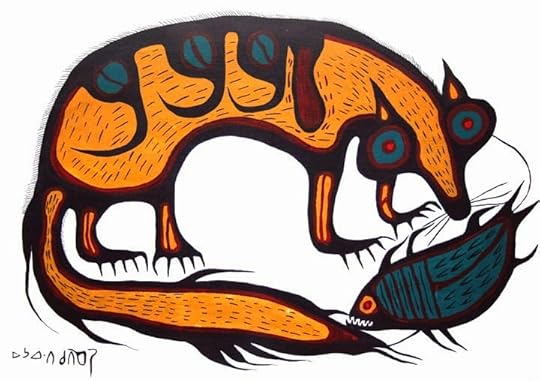 Fox and Fish
Fox and Fish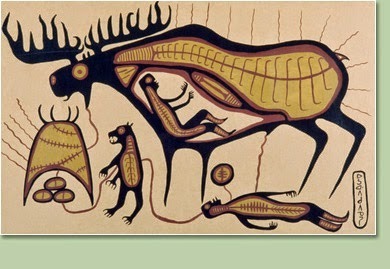 Sacred Caribou with Spirit Man
Sacred Caribou with Spirit Man
Published on May 29, 2014 05:44
March 26, 2014
Cover of Fauverie and some launch readings

This is the cover for Fauverie my sixth collection, due out from Seren in September 2014. The design is by Dragana Nikolic, who painted the cover and illustrations for my Serbian edition of The Zoo Father. Here is a draft of the jacket description:
The Fauverie of this book is the big-cat house in the Jardin des Plantes zoo. But the word also evokes the Fauves, 'primitive' painters who used raw colour straight from the tube. Like The Zoo Father, Petit's acclaimed second collection, this volume has childhood trauma and a dying father at its heart, while Paris takes centre stage – a city savage as the Amazon, haunted by Aramis the black jaguar and a menagerie of wild animals. Transforming childhood horrors to ultimately mourn a lost parent, Fauverie redeems the darker forces of human nature while celebrating the ferocity and grace of endangered species.
"Our winner was chosen because of the un-reproducible bite of the images, her brilliant understanding of human psycho-drama, the sustained accomplishment of her metaphorical imagination." Adam O'Riordan, Chair of judges, Manchester Poetry Prize
Launch readings so far include:
Wymondham Words Festival, Norfolk, Friday evening 19 September 2014
Kings Lynn Poetry Festival, 26 - 28 September 2014
Manchester Literature Festival, Living Worlds Gallery at Museum, Wednesday evening 8 October 2014
First Thursdays at Chapter Arts, Cardiff, Thursday 6 November, 2014
Dromineer Literary Festival, Tipperary, Ireland, Saturday 3 October, 2015
(More to follow, including a London launch)
Published on March 26, 2014 00:52
November 3, 2013
Effigies: Drawings by Lawand, Poems by Pascale Petit, now available from The Mosaic Rooms
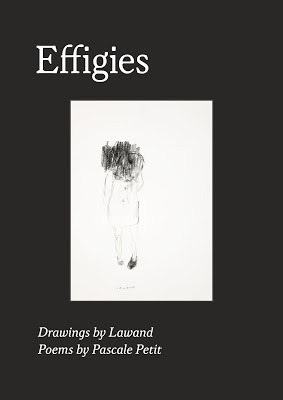
Effigies is now available from The Mosaic Rooms or its online shop for £12. This artbook collaboration contains fifteen drawings by the Syrian Kurdish painter Lawand and fifteen poems The Mosaic Rooms commissioned me to write in response to them this summer.
"The result is a deeply moving and imaginative work." Omar Qattan, The A.M. Qattan Foundation
About the artist Lawand and his exhibition Equinox: From Beirut to London
The Mosaic Rooms is currently showing Equinox, From Beirut to London, the first UK solo exhibition by Syrian artist Lawand. The exhibition features new paintings and drawings by the artist, made recently during a prolonged stay in Beirut, Lebanon.
Lawand’s paintings and drawings are dominated by elongated effigies with faceless heads, hanging or hiding in their hands. They float in formless backgrounds thick with paint, situated in the material and yet strangely placeless. The artist often hints at their movement, but denies them real motion, wrapping his figures in a private world within the painted surface. Most appear alone or with a child, each treated with a looseness of touch and depth of form that invests them with intimacy; in both large and small scale these untitled works are hauntingly emotive.
“I am not a painter of loneliness, even though my paintings are so little populated. I see in each and every one of my characters the entire human race. My characters often seem to be moving slowly and sluggishly but they are headed towards the endless path of light…so that my paintings express a desire to live!” (Lawand, 2013).
Lawand’s practice is also heavily influenced by poetry, and he has created a number of publications in collaboration with renowned poets. Born in Aleppo, Syria, in 1984, Lawand came to France with his family when he was ten. He lives and works predominantly in Lille, France.
The exhibition is on until 29th November and entry is free. Effigies was launched on 19 October in the galleries, during a talk between Lawand and Pascale on poetry and art. Photo by Carine Mneimneh.
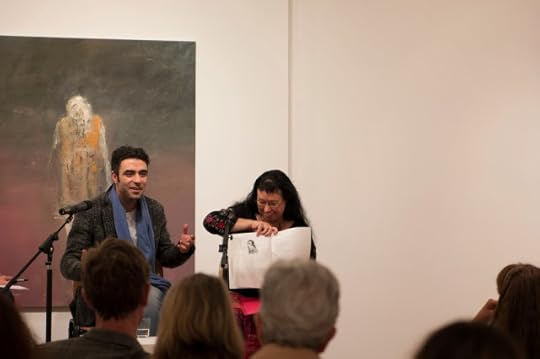
Published on November 03, 2013 07:10

